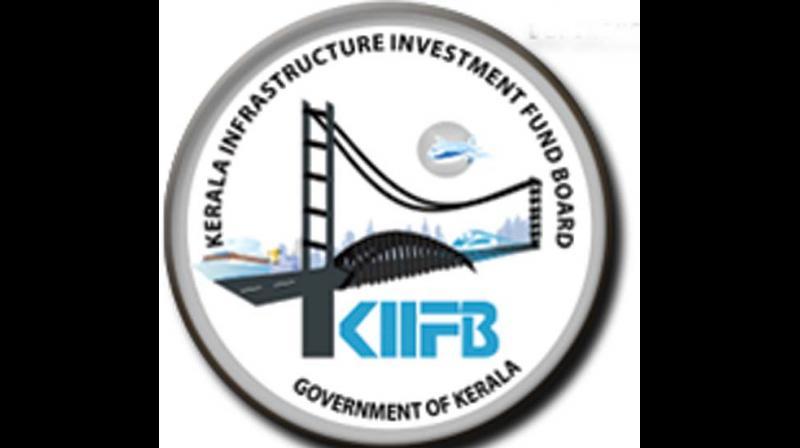Elections 2019: In a Desperate Attempt Kerala UDF Tries to Keep SNC Lavalin Alive

Whenever elections approach, whether it is Parliament, Legislative Assembly or local body elections, the Congress-led United Democratic Front in Kerala has always been rattling the old SNC Lavalin case, even though it has already been found that the case had nothing to do with the current chief minister Pinarayi Vijayan and his party - Communist Party of India (Marxist) [CPI(M)]. This time, the Congress has “connected” the SNC Lavalin with the masala bonds that had been floated by the Kerala Infrastructure Investment Fund Board (KIIFB).
Last week, the KIIFB concluded its debut international issue with masala bonds of Rs 2,150 crore attaining the title of first government agency to make an entry in the international debt market. It is said to be the second largest mobilisation in the masala bond market by any public sector company in the country. KIIFB has already resourced Rs 7,527 crore and confirmed bank loans worth Rs 2,600 crore.
Masala bonds are simply those bonds which are issued outside the country but it would be denominated in Indian Rupees.
The Congress, which has been targetting the KIIFB for a long, on Sunday, asked Chief Minister Pinarayi Vijayan to break his silence over the involvement of a company that has stakes in 'tainted' Canadian firm SNC Lavalin in an infrastructure bond floated by the state government. Both the BJP and the Congress alleged that one of the main investors in masala bonds was Canada's CDPQ, that has invested in SNC-Lavalin, black-listed in Kerala.
KIIFB CEO K.M. Abraham, however, said that CDPQ is a government body in Canada and had been created in 1965 by an act of the Quebec National Assembly. ‘‘From the annual report of SNC-Lavalin, it is seen that the CDPQ has business transactions with SNC-Lavalin. But SNC-Lavalin or none of the other institutions in which CDPQ has invested can have any ownership in the CDPQ as it is a government body. Hence it will be illogical to connect any of the investments of the CDPQ as part of its total portfolio of $220 billion, whether SNC-Lavalin or any other body, to the masala bond deal of KIIFB,’’ Abraham said in a press release.
Also Read: Kerala Govt Floats Scheme to Support Distressed North Indian Farmers
The press release further stated, "It is a public sector body whose entire beneficial interest is held by the Government of Canada. The CDPQ is an institutional investor which manages pension funds and insurance programmes, and has its headquarters in Quebec. It is the second largest pension fund in Canada. CDPQ has investments in 75 countries."
The state finance minister Thomas Issac said that the Congress has reached a stage where they need the name of Lavalin during every election even though the people had already discarded it during the 2016 Assembly polls.
"Until this money was raised, Ramesh Chennithala, time and again, called the KIIFB a bluff and when this money came in last week through bonds, they have turned to use the name of Lavalin. What they fail to realise is these bonds have been cleared by the Reserve Bank of India and other regulatory bodies. The Congress is short on issues and hence they fall back on these," Issac said in a Facebook post.
CDPQ has investments worth $220 billion across 75 countries including India. It has investments worth $4.5 billion (Rs 31,500 crore) in India, and the central government’s National Investment and Infrastructure Fund (NIIF) has been cooperating with the CDPQ for various projects. Isaac further added that the opposition leader “Chennithala can ask Nandan Nilekani to get a clear figure on CDPQ investments in India”.
SNC Lavalin was blacklisted by the Kerala government after allegations over an agreement in 1997 for the renovation and modernisation of Pallivasal, Sengulam and Panniar hydroelectric projects in Idukki district. Just before the 2006 Assembly polls, CAG had tabled the report saying “the expenditure of Rs 374.05 crore incurred for renovation did not yield commensurate gains due to various technical defects in the equipment...”
Though all the allegations were against the then power minister Pinarayi Vijayan, the initial procedures were under the UDF government and negotiations were made by the power minister CV Padmarajan. In August 1995, the then power minister G Karthikeyan in the UDF government signed the memorandum of undertaking with SNC Lavalin.
Later in 2006, the Oommen Chandy-led Congress government had called for a Central Bureau of Investigation probe into the entire agreement. Even though the CBI charge sheeted Vijayan along with six others, they were cleared of charges by a CBI special court as the charges could not be proved. Again, CBI moved the Kerala High court, but in 2017, the court observed that the allegations against them were baseless.
The masala bonds, which will be listed in the London Stock Exchange and Singapore Exchange now, have a five year tenure with 9.723% interest rate. At London Stock Exchange’s International Securities Market, the bond is going to be launched on May 17, the first time it is happening for an Indian state's bond, and Chief Minister Vijayan has been invited on the occasion.
While responding to the allegations over the high rate of interest, Abraham said the rates at which the KIIFB had raised funds were much lower than what any such institution had raised in the domestic market over the last one year. Also, KIIFB had obtained a BB rating (bond credit rating).
‘‘In comparison to the KIIFB’s masala bond rate of 9.723%, the rates obtained by bond issuers rated similar to the KIIFB in the domestic market for the last one year are significantly higher. The lowest rate at which an A+ rated entity has been able to raise fund in domestic market has been at 9.87%. A government entity such as the Andhra Pradesh Capital Region Development Authority (APCRDA) had raised funds in the domestic market at 10.32%. Rates at which other institutions banks such as the Central Bank (10.8%), Indian Overseas Bank (11.7%) and the South Indian Bank (11.75%) have raised funds during the period are much higher,” he said.
Kerala Infrastructure Investment Fund Board (KIIFB) came into existence on November 11, 1999, under the Kerala Infrastructure Investment Fund Act 1999. The main focus of the Board was to provide investment for critical and large infrastructure projects in Kerala. Comprehensive modification of the Act and Scheme has been made through an amendment Ordinance in August 2016. With new strategy and structure, KIIFB aims to dynamically mobilise funds for the infrastructure development of Kerala.
Read More: Kerala Govt’s 1000 Days: Significant Advancements in Social and Economic Spectrum of State
Get the latest reports & analysis with people's perspective on Protests, movements & deep analytical videos, discussions of the current affairs in your Telegram app. Subscribe to NewsClick's Telegram channel & get Real-Time updates on stories, as they get published on our website.
























